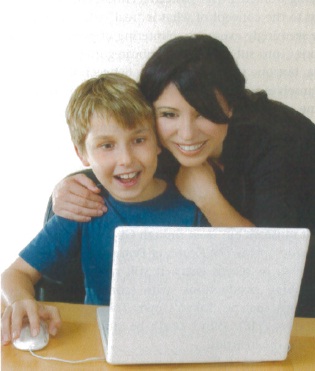by Angela Bartlett, webmaster of Homeschooling in Japan
April along with the cherry blossom season has been and gone, and with it the start of a new school year. Or is it? For an increasing number of homeschooling families, no one month may actually mark the beginning of a new study period. Instead the “school” year is integrated neatly into family life, and learning goes on, invisibly, month after month, through the holidays and on trips—winters and summers alike.
When people ask me why I homeschool, this is often the reason I give them: I don’t have to abide by anyone’s schedule but my own. We’re free to travel when fares are cheaper and destinations aren’t so crowded. We’re free to go to museums and parks whenever we please. If we wake up one sunny morning, and find the day simply too glorious to remain inside studying, we pack up an obento and go bicycling or hiking or to a zoo. Likewise, if we wake up to driving rain and a howling wind, there is no need to make our way anywhere; we can stay in our pajamas and curl up with a good book or get that computer project finished that we’ve been postponing. My son is fourteen, and starting now to think about university—only a few years away—and every single day I am grateful for all the wonderful homeschooling days that we have shared.
When parents first contemplate homeschooling, however, they usually don’t think in those terms. They think: “how can I give my child the best education?” Homeschooling is increasingly the answer to that question, for reasons, which are as varied as families are themselves. So although I’m reluctant to speak as a “typical” homeschooler—in my experience there is no such thing—I will only suggest that homeschooling offers families a chance to design the educational experience around the needs and abilities of the individual child, rather than expecting that child to conform to the requirements of an all-purpose education. A child who is faster than his peers in some areas and slower in others has no need to be bored by subjects that are too easy or have his confidence shattered by subjects that are too hard. Often if a subject is too hard, waiting six months or a year is enough to make it much easier. A child who learns willingly at his own pace has a better learning experience overall.
Having made the decision to homeschool, parents may find themselves confronted by a bewildering myriad of choices. Homeschooling style: Classical, eclectic, unschooling, Charlotte Mason, unit study, traditional… the list goes on. Homeschooling curriculum: All-in-one, distance learning, subject by subject… and again, the list is long. Many parents, myself included, respond to researching the possibilities by going overboard; we end up with way more stuff than our children can use before they’ve grown past it. When it comes to purchasing curriculum, my advice, at least in the beginning, is simple: don’t. Just don’t. Homeschooling with younger children is incredibly easy. There is no need to over-complicate it. In those first few months, education can consist of you reading aloud with or to your children, playing math games with money or homemade materials, and lots of time outside, learning from nature and exploring your town. Tokyo and other Japanese cities offer way more learning opportunities than you can ever use—sports centers, jidokans, libraries, museums, concert halls, zoos, aquariums, parks, and hiking courses.
After those first few months of homeschooling, you will have had plenty of time to learn your children’s learning styles, find out what interests them, and what resources are available to you. You will have had time to research curriculums. At that point you can start slowly looking for materials and a homeschooling style that will work for your family. You will probably find your style evolves over time as your child’s needs and interests change. This is one of the truly exciting aspects of homeschooling, watching your child’s interests come alive as he or she explores the world.
One objection to homeschooling that I have often heard is the inability of any one parent to be an expert in everything. No one person can be a specialist in Shakespeare, music, physics and trigonometry, it is said; therefore a parent isn’t qualified to teach. This argument strikes a kind of corollary fear in the hearts of some homeschooling parents, which may be expressed as “What if I forget to teach him something?” That is, what if my child gets to be twenty years old and doesn’t know how to parse a sentence or what an imaginary number is used for or just who King Lear was anyway? This objection—or fear—misses one of the main points of homeschooling—which is to produce self-learners. So no, I don’t kid myself or my son that I am an all-knowing expert in everything, and certainly if I need an expert—in music, or Japanese, or sports—I can hire one. What’s most important is that my son knows if he wants to learn something, he has the ability to find out how to go about doing that, whether it is as simple as google-ing a word definition or as complex as laying the groundwork for a course in calculus. We’ve empowered him with the ability to seek out knowledge himself, and that’s a skill that will last with him his whole life long.
Want to learn more?
Check out the following websites:
• Homeschooling in Japan www.asahi-net.or.jp/~ja8i-brtl
• Education in Japan (our sister site) www.education-in-japan.info
We also have two forums:
• edn-in-jpn (education in Japan) groups.yahoo.com/group/edn-in-jpn (for discussions on all aspects of education in Japan);
• hs-in-jpn: (homeschooling in Japan) http://groups.yahoo.com/group/hs-in-jpn (for parents who are homeschooling full-time)
Enjoy your adventures in learning!









